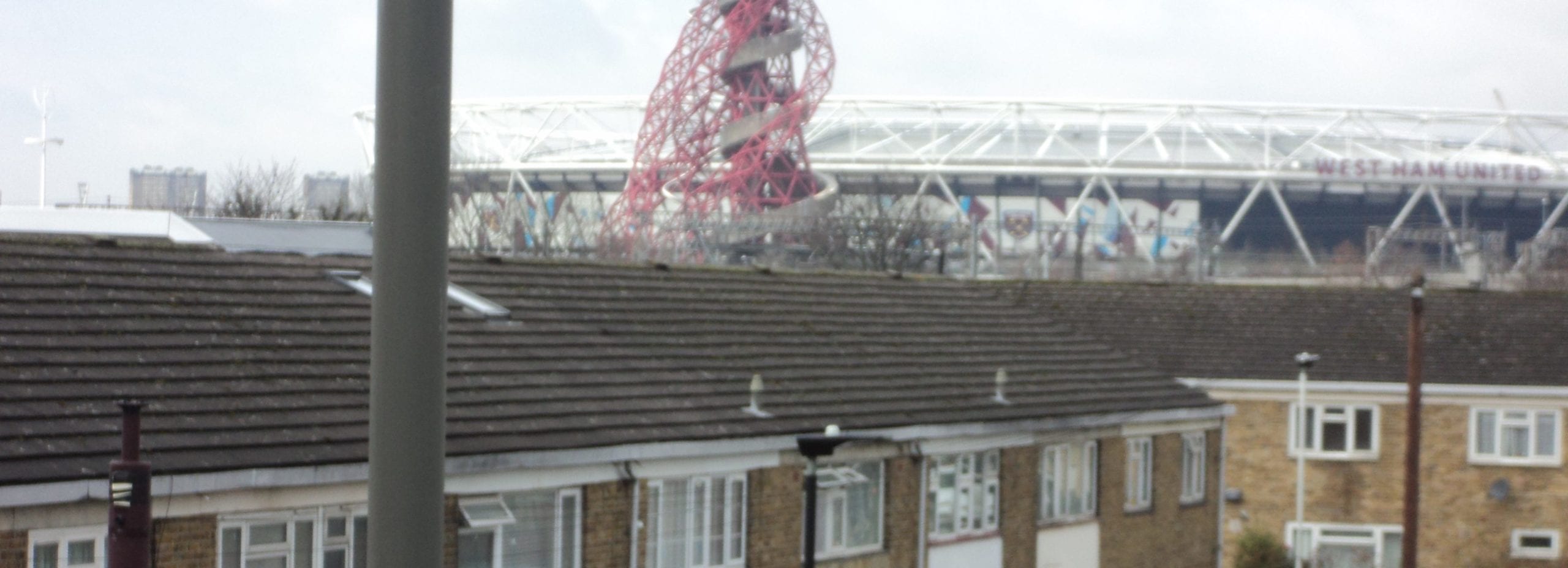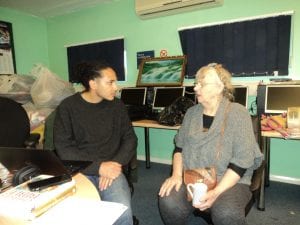International Learning – Gentrification in London

IRL fellow Dominic Moulden was recently hosted in London to connect with researchers and community leaders around issues of affordable housing and gentrification. This review of their time together was written by Dr Adam Elliott-Cooper, research associate at King’s College London, whose current research focuses on urban displacement.

London is one of the most expensive cities in the world. We are seeing a proliferation of ‘affordable’ homes, which cost up to 80 percent of the market rate, and are outside the remit of most ordinary Londoners. Against this backdrop, we invited Interdisciplinary Research Leader Dominic Moulden from One DC, a community organisation fighting for racial and economic equity in Washington, to tour some of the areas undergoing this so-called economic regeneration with Dr. Adam Elliott-Cooper, a research associate at King’s College London who focuses on urban displacement. Their first stop was a community centre on the Carpenter’s Estate in Newham, East London. A stone’s throw from the 2012 Olympic site, Carpenter’s Estate has become a magnet for investors and real estate developers. Residents have been battling for years to prevent their homes from being demolished, and some tower blocks, with 80 homes, only have a handful of defiant residents remaining. During their visit, both residents and former residents chatted about life on the estate, displacement, their experiences being moved out of their homes (the council calls it ‘decanting’), and their struggles to stay in the area they call home.
Next up, the duo hopped on the Overground train, and visited Dalston in Hackney, to the north. Dalston’s bustling shops and bars have undergone a huge transformation over the past twenty years. The familiar signs of hipsters – expensive coffee shops and pubs selling craft ale – have popped up among the Caribbean community’s historic symbols, such as the CLR James Library, Ridley Road Market and a range of food outlets. Later that week, Dominic and Adam went to Brixton, the unofficial capital of Black Britain. Like Dalston, it has seen new retail outlets emerge over the past few decades, unaffordable to it’s mostly working-class residents. As council housing has been replaced with private properties, those resident in the area are increasingly likely to be young, middle-class professionals. Despite this, Brixton’s Black, working class history has been preserved by the market, record shops, food outlets and the Black Cultural Archives.
In many ways, gentrification in London is similar to the U.S. – historic working class and Black communities are being transformed and forced out by big property businesses and local government. While the histories of these communities may be quite different, and the means through which they face displacement varies, it remains clear that resistance on both sides of the Atlantic is fertile.
Dr. Adam Elliott-Cooper is a research associate at King’s College London. His current research focuses on urban displacement.
Learn more about Dominic Moulden and the rest of his IRL team by visiting their bios on the IRL site. You can also follow Dominic and other IRLeaders on twitter for more information on how researchers are breaking down silos and building a culture of health.
